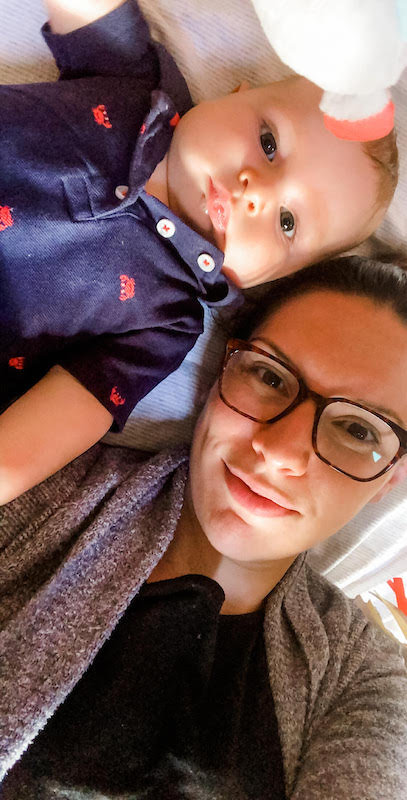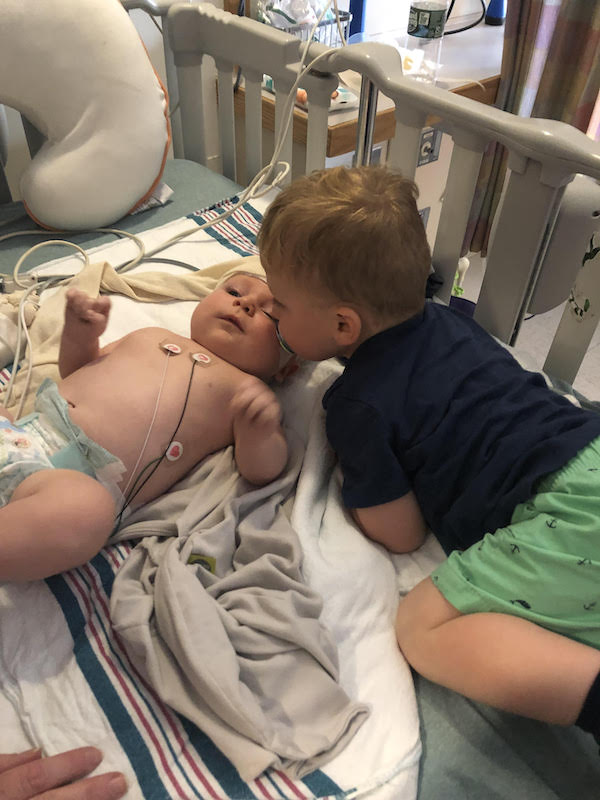Let me start by saying that I consider myself very fortunate to have spent the years that I did working in one of the best Neonatal ICU’s in the country, and learning from some of the best in the field of pediatrics both clinically and academically. I started working in the NICU right after I completed my Master of Public Health with a concentration in Maternal and Child Health. I was already working in the hospital as a data coordinator in one of the oncology departments, so a move over to the place I could gain the most experience with high-risk pregnancies and newborns made perfect sense.

During my time in the NICU, my role evolved to include more clinical responsibilities than my original job description and I soon found myself attending deliveries, attaching oxygen saturation monitors to preterm infants and bringing them for imaging, and spending lots of time participating in some of the most heart wrenching conversations about decisions no parent should have to make for their child. I am grateful to every mother and every family who allowed me to be a part of their experience. I am also in awe of the women and families who agreed to participate in the research I was responsible for conducting. It is not lost on me that asking a person who already has an indescribable burden of worry and fear to do anything extra for the benefit of someone else (as most research doesn’t directly benefit the participant, it is aimed at benefiting future patients with the same condition) seems, in a way, unfair. But, to their utmost credit, the women who chose to participate and, in turn, agreed for their babies to participate in our studies did so with the fullest level of commitment.
During my middle-of-the-night delivery calls, hours spending standing in the corner of operating rooms, and days spent talking over “decision-making points” with physicians, I filed away a few skills and tidbits I have taken with me into my own experience of motherhood. I learned that babies are tougher than anyone gives them credit for. Yes, they are fragile. Yes, they are tiny. And yes, they need very specific conditions to thrive. But, they are also wired to fight. It is up to us as mothers and caregivers to teach our children how to tap into their own innate abilities and strengths. I learned that maternal instincts are the realest thing on this earth. When a mama says “something isn’t right”, believe her. There is no way to describe it and no way to rationalize it, but I have witnessed some of the most intense displays of courage and advocacy for their children from mothers who had every reason to be a puddle on the floor. I also learned that it. takes. a. village. Some of the support systems I was fortunate enough to witness and be a small part of for mothers and families were inspiring. And my heart broke for the women I knew needed support so badly for themselves and for their babies.
Spending my days and nights surrounded by women with high-risk pregnancies and babies who were sick, for one reason or another, also affected my own motherhood in other ways I wasn’t expecting. For the first few months, I was convinced that every little blip with TJ (low-grade fevers, slightly raspy voice, one hive one time after eating eggs) was a sign of something much more serious. After all, I didn’t see healthy women have healthy deliveries and bring home healthy babies. Every one of my patients and families was, in a sense, a cautionary tale. It took me a long time to slow my thoughts and trust that TJ was healthy.

And then came Jacob….and no amount of experience can prepare you for seeing your own child on those monitors. Again, I think some of it was a little bit too much experience with worst case scenario, but I prepared myself for the worst possible news every time we had an appointment for him. I also understood what was happening with him and why it was so challenging to figure out in a way that my husband and family members didn’t. As we continue to go through Jacob’s journey, I am more grateful than every to the physicians and families who taught me every day.
As my career has moved away from the clinics and floors and into the management side of clinical research, I often think about the families I spent so much time with and the babies I am lucky enough to know and watch grow up. It is a very special thing to be able to learn from such an intensely special and overwhelming time in someone else’s life. And, I will say it over and over again, I am eternally grateful.
xo,
Stephanie
Recent Comments